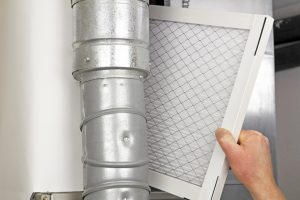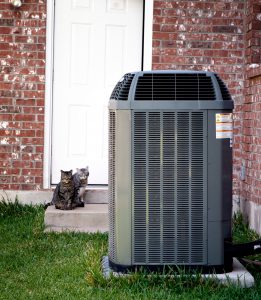
Wood fireplaces in Columbia City, IN are wonderful. Not only does the value of your house get driven up tremendously with a wood fireplace, but it increases your comfort and provides an incredible aesthetic that is irreplaceable. We completely understand why homeowners get so defensive about their fireplaces. They’re almost like another member of the family.
It’s always heartbreaking when a fireplace becomes so worn down that it’s nearly unusable by a family. We talk to homeowners all the time who say they wish they could use their fireplace, but they’re just not sure how well it works after years of neglect. Most homeowners don’t neglect their fireplaces on purpose—it just happens.
Today, we’re going to talk about some ways that you could get your fireplace lasting longer. We’ll talk about best practices and how our team can help.



 When it comes to furnaces, homeowners know the basic idea of how they work. A gas furnace burns fuel to create heat that transfers from a heat exchanger to the air duct system of your home. This heat is then distributed through your home, effectively heating your home and keeping each room to the temperature specification you set on your thermostat. Sounds simple enough, right?
When it comes to furnaces, homeowners know the basic idea of how they work. A gas furnace burns fuel to create heat that transfers from a heat exchanger to the air duct system of your home. This heat is then distributed through your home, effectively heating your home and keeping each room to the temperature specification you set on your thermostat. Sounds simple enough, right? While you might have heard us mention replacing your furnace filter time and time again, we’re still addressing the fact that many homeowners don’t know their furnace even has a filter! This is incredibly important to us because we’re all about providing quality maintenance to make sure that your furnace lasts as long as possible. A happy, healthy, furnace means low heating bills and a comfortable home for many years to come.
While you might have heard us mention replacing your furnace filter time and time again, we’re still addressing the fact that many homeowners don’t know their furnace even has a filter! This is incredibly important to us because we’re all about providing quality maintenance to make sure that your furnace lasts as long as possible. A happy, healthy, furnace means low heating bills and a comfortable home for many years to come.

 We hope you’re reading this post because you have these questions on your mind—probably because you’ve seen mention on our site, or elsewhere on home service pages, that routine furnace filter changes are mandatory for top heating performance.
We hope you’re reading this post because you have these questions on your mind—probably because you’ve seen mention on our site, or elsewhere on home service pages, that routine furnace filter changes are mandatory for top heating performance.
 We’ve written previously about making the choice to retire an aging air conditioner and putting a new one in before summer arrives. But we didn’t address the next question you ask once you’ve answered, “Should I replace my AC?” And that question is, “What should I replace it with?”
We’ve written previously about making the choice to retire an aging air conditioner and putting a new one in before summer arrives. But we didn’t address the next question you ask once you’ve answered, “Should I replace my AC?” And that question is, “What should I replace it with?”